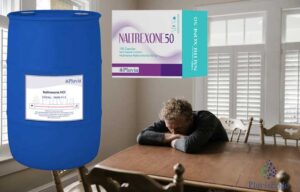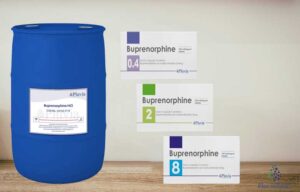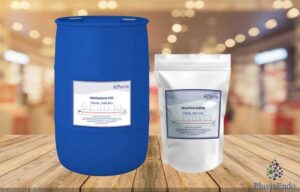Methadone treatments, in the form of medication-assisted therapy, play a crucial role in helping individuals recover from opioid addiction. Navigating the complexities of methadone treatment can be overwhelming, but with the right knowledge and support, it can lead to a successful path to recovery.
In this comprehensive guide, we will delve into the ins and outs of methadone treatment. We’ll cover everything from how it works and its benefits to potential challenges and tips for managing withdrawal symptoms. This guide also aims to provide valuable insights and resources to help navigate the road to recovery. Whether you are considering methadone treatment for yourself or supporting a loved one, this information can be helpful.
Understanding Methadone Treatments
Understanding methadone treatment is crucial for individuals navigating recovery from opioid addiction. Methadone is a medication that helps reduce withdrawal symptoms and cravings in people dependent on opioids. Methadone works by targeting the same receptors in the brain that opioids do, but in a safer and more controlled manner. This allows it to reduce cravings and withdrawal symptoms associated with opioid dependence. Methadone treatment is often used as part of a comprehensive approach to opioid use disorder. It may also include counseling, therapy, and support services.
One key aspect of methadone treatment is the process of stabilization, where the medication is carefully monitored and adjusted to find the right dose for each individual. This phase is essential for managing withdrawal symptoms and reducing the risk of relapse. It is important to note that methadone treatments should be taken under medical supervision, as improper use can lead to overdose and other serious health risks.
Furthermore, methadone treatment is not a quick fix but rather a long-term commitment to recovery. It requires regular visits to a clinic or healthcare provider for medication management and monitoring. The goal of methadone treatments is to help individuals regain control of their lives, improve their overall health and well-being, and reduce the harm associated with opioid addiction.
By understanding the principles and process of methadone treatment, individuals can make informed decisions about their recovery journey and take the necessary steps toward a healthier and drug-free life.
Benefits and Challenges of Methadone Treatments
Methadone treatment can be a valuable tool in the journey to recovery for individuals struggling with opioid addiction. One of the primary benefits of methadone treatment is its ability to help manage withdrawal symptoms and reduce cravings, making it easier for individuals to focus on their recovery journey. Methadone is a long-acting opioid medication that helps to stabilize brain chemistry, allowing individuals to function normally without experiencing the intense highs and lows associated with opioid use.
However, like any treatment option, methadone therapy comes with its own set of challenges. One of the main challenges is the stigma surrounding methadone treatment, which can deter individuals from seeking help or completing their treatment program. Additionally, methadone is a controlled substance that needs to be taken as prescribed to avoid misuse or dependency. It is crucial for individuals undergoing methadone treatment to adhere to their treatment plan and work closely with healthcare professionals to ensure a safe and successful recovery process.
Despite these challenges, the benefits of methadone treatments far outweigh the risks for many individuals seeking to overcome opioid addiction. With proper support, guidance, and a commitment to recovery, methadone treatment can be a crucial step toward reclaiming a healthy and fulfilling life free from the grips of addiction.
Managing Withdrawal Symptoms
Withdrawal symptoms can be one of the most challenging aspects of methadone treatments. It is crucial to understand that experiencing withdrawal symptoms is a normal part of the recovery process. In addition, it is a sign that your body is adjusting to the absence of opioids. To manage withdrawal symptoms effectively, it is essential to work closely with your healthcare provider. Also, follow a structured tapering schedule.
Your healthcare provider can help you develop a personalized plan to gradually reduce your methadone dosage. Also, it can minimize the severity of withdrawal symptoms. Additionally, staying hydrated, eating a balanced diet, engaging in regular exercise, and getting adequate rest can all help alleviate discomfort during withdrawal. Practicing relaxation techniques such as deep breathing, meditation, and yoga can also be beneficial in managing withdrawal symptoms.
Remember that withdrawal symptoms are temporary and will eventually subside as your body adjusts to the changes. Stay committed to your recovery journey, seek support from loved ones and healthcare professionals, and trust in your ability to overcome challenges on the path to healing and wellness.
Building a Strong Foundation for Long-Term Recovery
Building a strong foundation for long-term recovery is crucial when navigating treatments using every form of PluviaEndo‘s Methadone. Recovery is a journey that requires commitment, dedication, and ongoing support. One of the key elements in building a strong foundation is establishing a solid support system. Surround yourself with people who understand your journey. Whether it be family, friends, or support groups, can make a significant difference in your recovery process. Communicating openly and honestly with your support system is important, as they can provide encouragement and help you stay on track.
Another essential aspect of building a strong foundation for long-term recovery is developing healthy coping mechanisms and self-care practices. Finding alternative ways to manage stress, triggers, and cravings can help you maintain your sobriety and avoid relapse. Engaging in activities that promote physical, mental, and emotional well-being, such as exercise, mindfulness, therapy, or hobbies, can be beneficial in keeping you focused on your recovery goals.
Additionally, setting realistic and achievable goals can also contribute to your long-term success in recovery. Celebrate your milestones, no matter how small, and use them as motivation to keep moving forward. By establishing a strong foundation based on support, healthy coping strategies, and goal-setting, you can increase your chances of long-term success in your methadone treatment journey. Remember, recovery is a process, and building a strong foundation is the first step towards a healthier and happier future.









